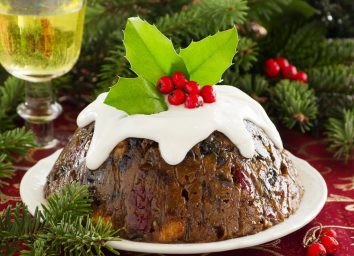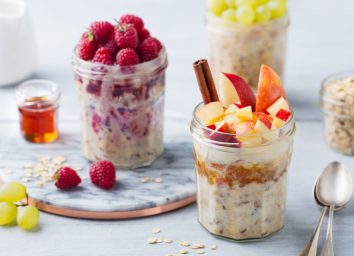10 Naughty Foods That Can Keep You On the Nice List

From those "blossom" cookies with the Hershey kisses pushed in them to boats of creamy gravy, the holidays are stacked pretty high with not-so-nice-for-your-waistline foods. Sometimes, these foods don't just spike the number on the scale—they can also put you in a cranky mood that makes the Grinch and Scrooge look like a couple of angels. But then there are the "naughty" foods that so don't deserve to be shunned the way boxed mashed potatoes and frozen cakes do. Instead, these foods deserve a place on your grocery shopping wishlist because they'll help you wake up to a slimmer you and give you the energy to hit the gym. Now that's a nice gift to get, no? Check 'em out below and then take a look at our list of 16 Best and Worst Christmas Themed Groceries. (Hint: There's eggnog!)
Bread
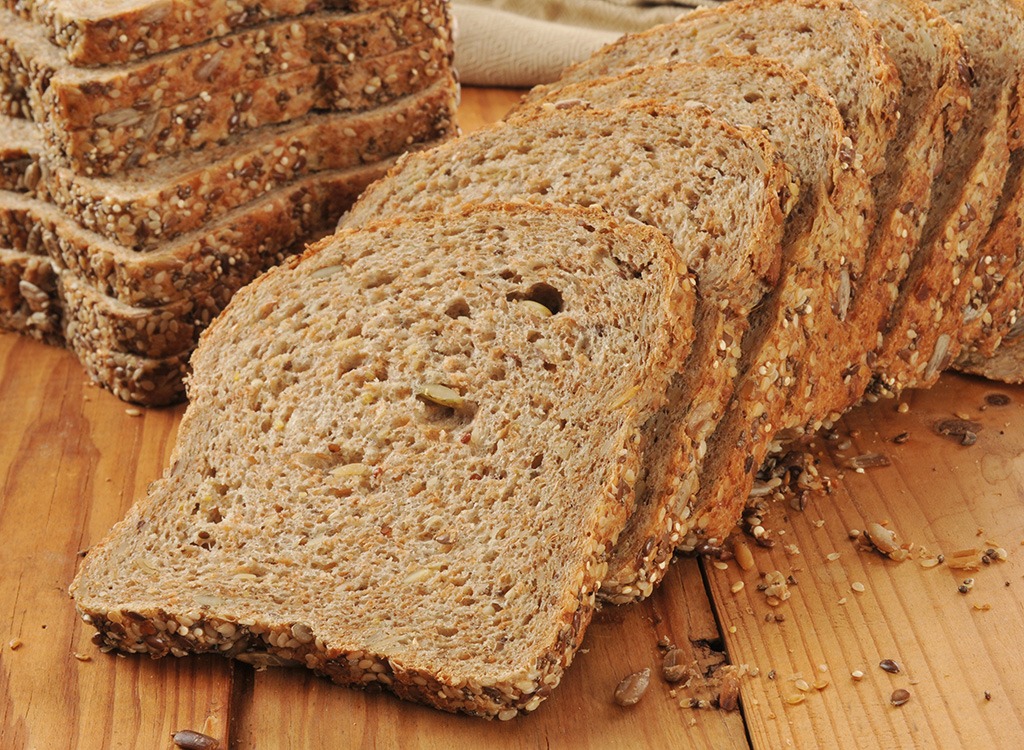
Well, whole grain bread, that is. (White bread still gets coal in its stocking!) When your hormones are all over the place (PMS, stress at work, whatever), you wind up craving carb-rich foods because they help comfort your hormonal rollercoaster. But cookies won't make you nearly as happy (or thin) as a complex carb like whole grain bread. We like Ezekiel 4:9 Cinnamon Raisin Sprouted Whole Grain Bread because the raisins provide a natural sweetness to nip your sugar craving in the bud while the vitamin B6 and manganese-rich whole grains help boost your mood. Toast up a slice as a mid-morning mood-boosting snack. Find out the 15 Reasons People Are Obsessed with Ezekiel Bread if you need more convincing to leave Santa some toast instead of cookies!
Chocolate
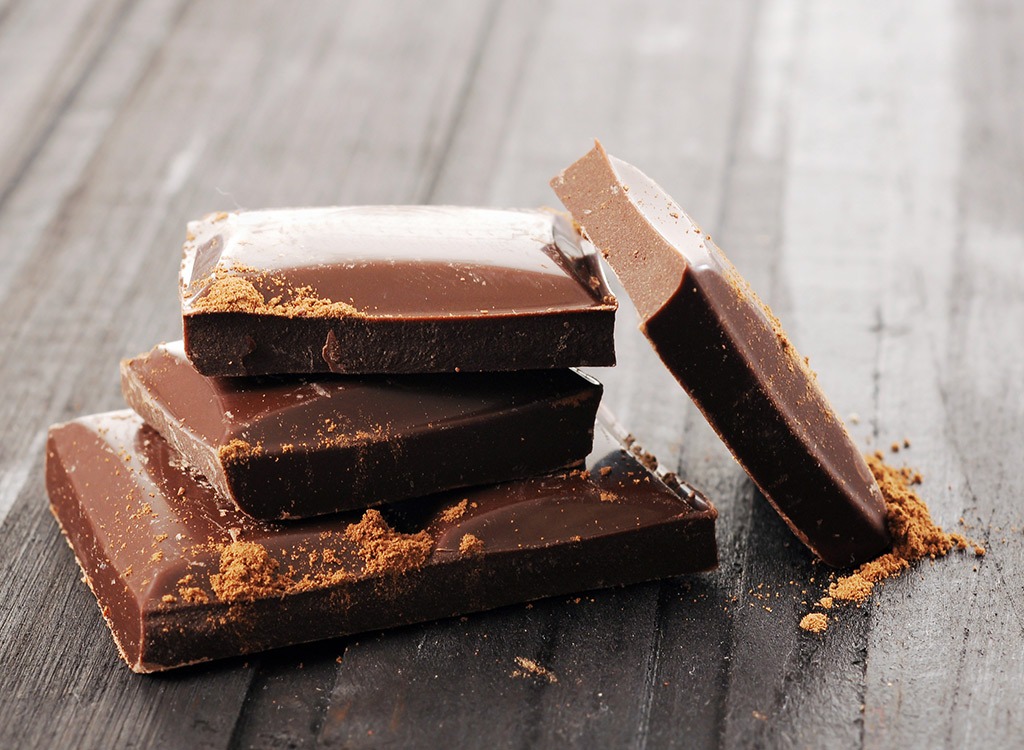
If you stick with dark chocolate that's 70 percent or more cocoa solids, you'll actually enjoy some heart-healthy, monounsaturated fats and anti-inflammatory flavonols, two components which have helped connect chocolate to lower risk of stroke and developing heart failure. Not only that, but chocolate has been connected with having a healthier gut: the good bacteria in our belly probiotics eat cocoa, fermenting it into anti-inflammatory compounds. Bottom line: Dark chocolate is rich in stress-reducing, fat-blasting flavonoids—but its waist-whittling effects do not extend to the fake, highly-processed stuff!
Bacon
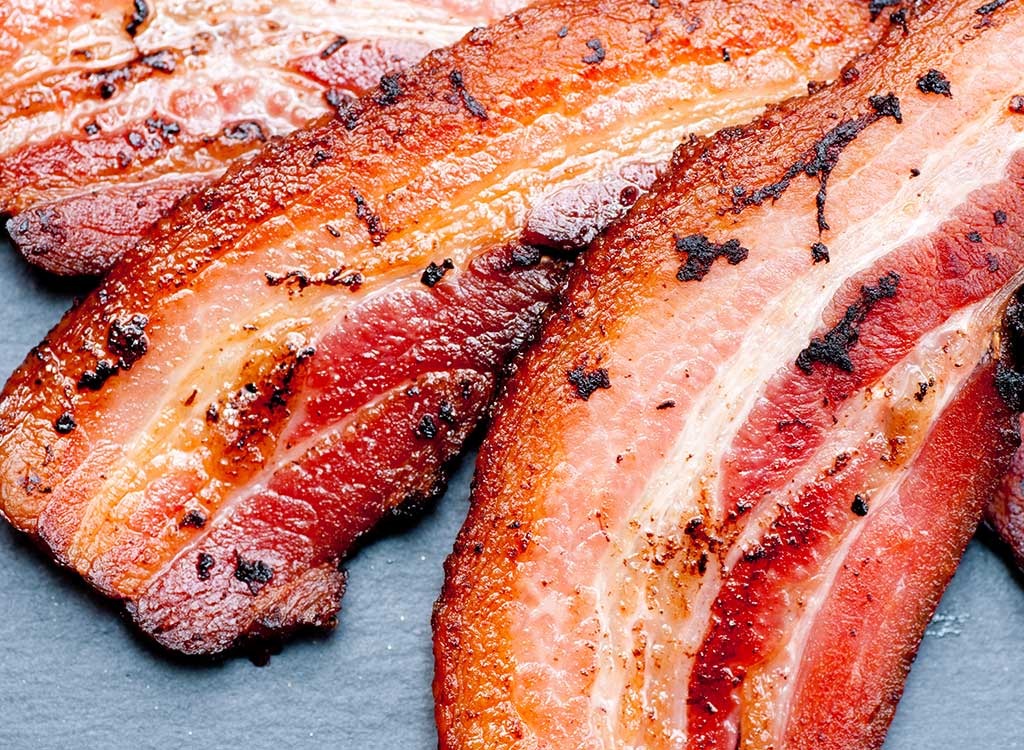
Many processed meats are preserved with sodium nitrites, which are linked to cancer in some situations. Luckily, many companies are now making bacon cured without sodium nitrites now—just plain old sodium—meaning they're safer than traditional cuts. Plus, center-cut pork bacon can even relay health benefits since pork is a great source of protein and heart-healthy monounsaturated fatty acids (MUFAS). Just bear in mind that serving size matters, so don't pig out.
Potatoes
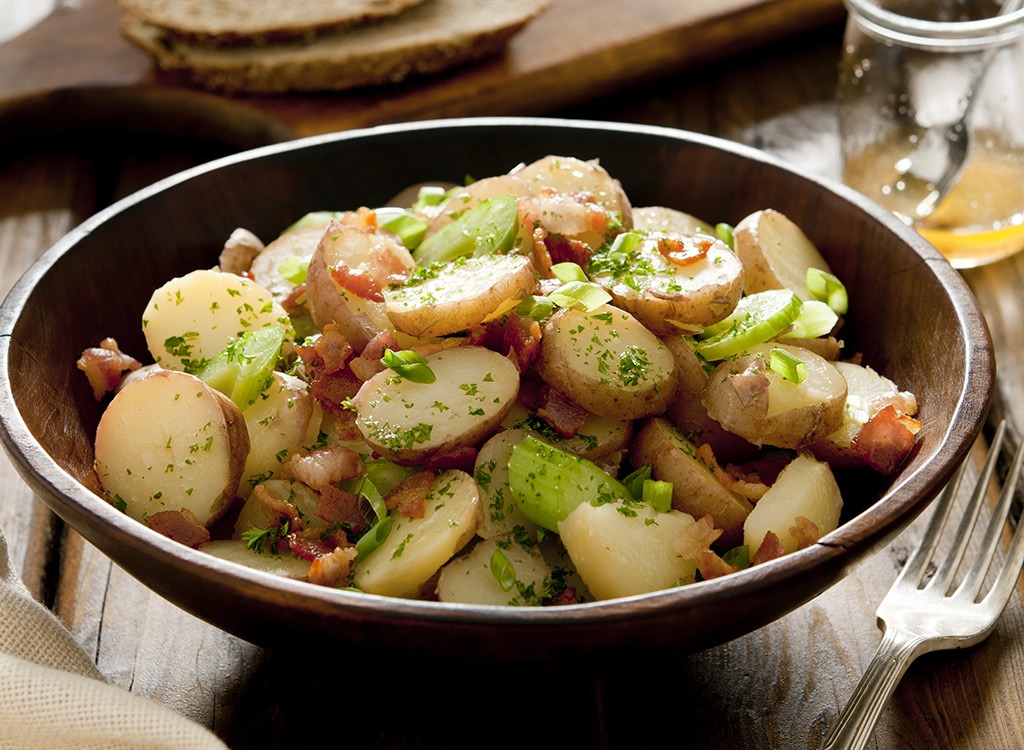
After taking a second look at the science, you'll see there's no need to be scared of the spuds—they're actually powerful hunger tamers that can help you slim down. In an Australian study that measured the satiating index of 38 popular foods, researchers discovered that potatoes even ranked better than healthy picks like brown rice and oatmeal. As a result, research participants ate less on the days they consumed them. Not to mention, this root vegetable is also a good source of potassium, vitamin C, and belly-filling fiber. To maximize their flat-belly benefits, throw 'em in the refrigerator and make a potato salad. The cooling process will crystallize the tubers into resistant starch, which takes longer to break down in your intestine, producing fat-burning butyrate and delaying hunger pangs.
Whole Milk
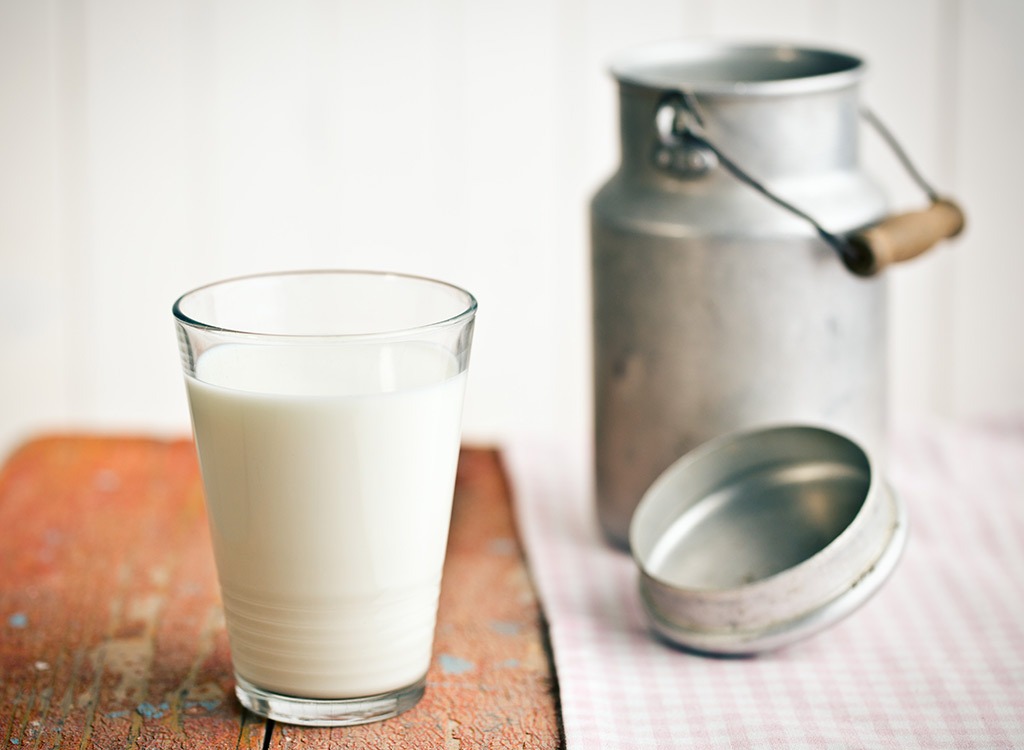
A recent review published in the European Journal of Nutrition found that people who eat full-fat dairy are no more likely to develop cardiovascular disease and type 2 diabetes than people who stick to low-fat dairy. This might blow your mind even more: the same review linked full-fat eaters to lower body weights, less weight gain, and even lower rates of obesity compared to those who eschewed fat. While skim milk may have seemed like the healthiest option on supermarket shelves, we now know you're missing out on important fat-soluble vitamins if you don't opt for at least 1% (and we recommend going all out with whole, which is around 3.5%). To get the most health benefits out of your milk, look for organic and 100% grass-fed varieties.
Red Meat
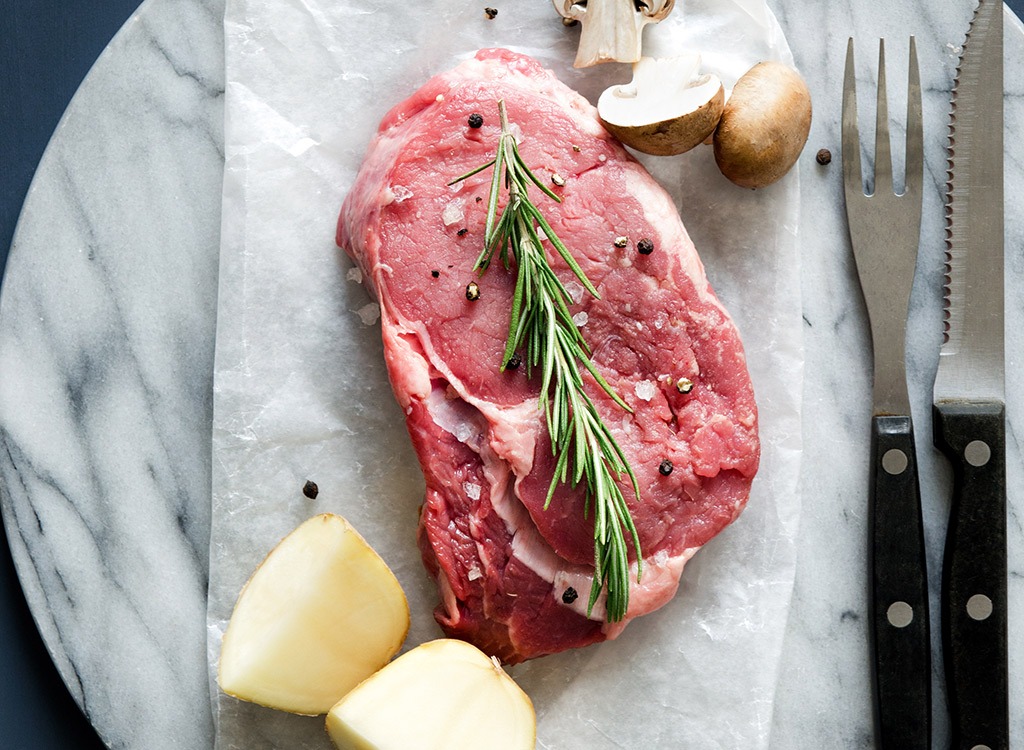
Red meat is often seen as a villain because of its saturated fat content—and the fact that many Americans' #1 source of it is an unhealthy, fast food hamburger. But if you consume no more than two or three servings (each about 3 ounces) of red meat per week, and stick to lean and grass-fed varieties whenever possible (not fast food hamburgers!), eating moderate amounts of lean beef can actually help you lose weight and improve your overall diet quality. Grass-fed meat naturally has fewer calories than conventional meat and contains higher levels of omega-3 fatty acids. Omega-3s have been shown to reduce inflammation, improve insulin resistance and help the liver carry fat out of the body, so it's the best bet for your waistline. It's also jam-packed with a nutrient that can supercharge your workouts and fry flab: iron. Getting adequate amounts of this mineral can keep your metabolism humming and boost your energy, allowing you to hit the gym with gusto and sculpt the body you've always wanted.
Red Wine

We're not saying you should be pounding back the bottle, but you can hit the bar and enjoy a glass for the sake of your well-being. Purdue University researchers discovered that red wine, in particular, contains a compound called piceatannol that binds to fat cells' insulin receptors and prevents them from maturing and growing. Another compound, called ellagic acid, has been shown to change the way "fat genes" express themselves, boosting your metabolism and slowing the growth of existing and new fat cells. More research suggests yet another healthy antioxidant in wine—resveratrol—could help to counter some of the negative effects associated with lack of exercise, like muscle loss and blood sugar sensitivities. If those aren't enough reasons, check out these 23 Healthy Benefits of Alcohol.
Coffee

Not only does coffee give you energy, but it also has many health benefits like boosting metabolism, burning belly fat, and reducing anxiety. And drinking that second cup of coffee may do more than get you through the work day; it may also save your life. Research published in the journal Circulation found that those who drank between three and five cups of java daily were up to 15 percent less likely to die of any cause than those who weren't regular coffee drinkers. Plus, one of coffee's phytochemicals, chlorogenic acid, is a bit of an unsung hero. How does it keep you healthy? The compound reduces glucose absorption in the intestine and liver glucose output, helping to ward off diabetes.
Honey

Honey, unlike table sugar, is packed with beneficial compounds like quercetin and kaempferol that reduce inflammation, keeping your brain healthy and warding off depression. Honey also has a less dramatic impact on your blood-sugar levels than regular sugar, so it won't send your body into fat-storage mode the way the white stuff can. Try adding some honey to your afternoon tea or morning bowl of oatmeal, but don't go overboard; the sweet nectar has 17 g of sugar and 64 calories per tablespoon, so too much honey can make you heavy, rather than happy. Pair honey with these Fat-Burning Foods to Put in Your Oats!
Butter
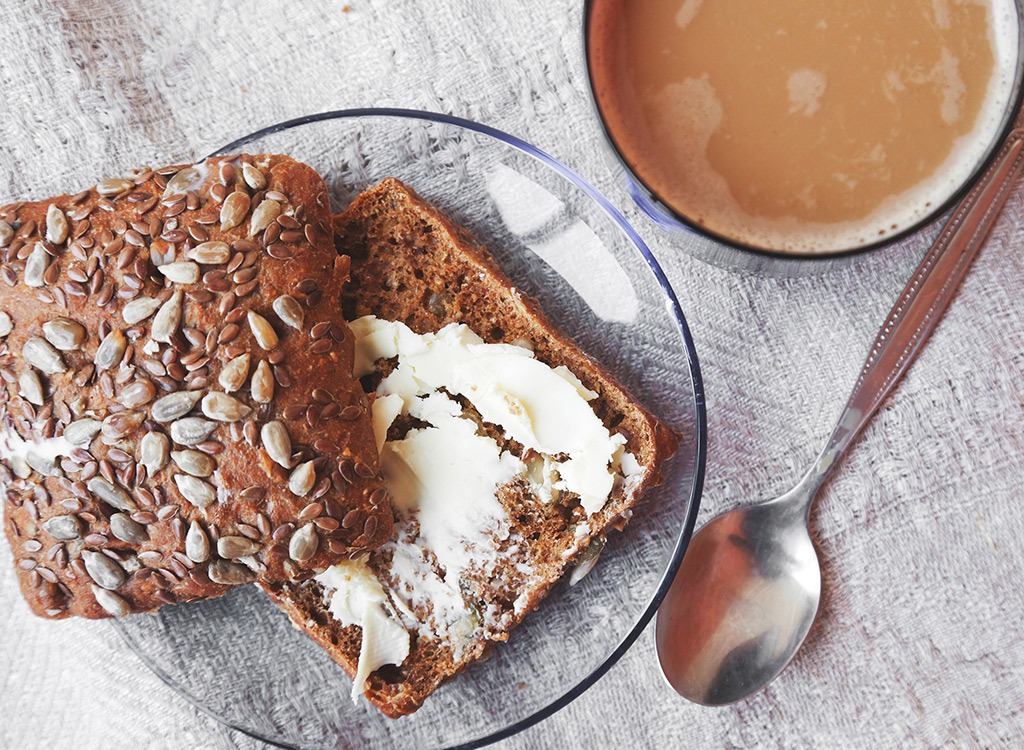
Step away from the margarine! Real butter—particularly grass-fed—is an excellent source of fatty acids that can support weight loss. Though most people don't know it, grass-fed butter carries many health benefits. It can be a good source of vitamins, minerals, and fatty acids, while also slowing down the absorption of sugar and carbohydrates. By picking up a grass-fed butter, you're getting an excellent source of cancer-fighting acids that help keep cells youthful and fit.
